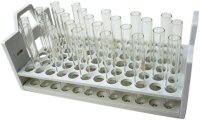
Find all the latest penis news right here - penis size, penis enlargement, penis size, impotence, Viagra, STDs, sex drive, jelqing, male fertility and prostate health. Your best resource for penis news, information and discussion.
|
23 October 2000 This "vaccine-plus" did not keep these monkeys from becoming infected with the virus. But, the treatment strengthened the immune response of these animals to the point where levels of the virus were undetectable. Moreover, the monkeys showed no signs of disease or death as a consequence of their infection. The results of this study suggest that a "potent, vaccine-elicited immune response can be capable of dramatically changing the clinical outcome of an AIDS virus infection," said lead author Dan H. Barouch of Beth Israel Deaconess Medical Center and Harvard Medical School in Boston. Along with preventing the full-blown development of AIDS, this type of vaccination strategy could decrease HIV-1 transmission rates by reducing levels of viral replication in vaccinated individuals, according to the Science researchers. The approach devised by Dan Barouch and Norman Letvin of Beth Israel Deaconess and Harvard Medical School and colleagues contains DNA from the core and envelope of the AIDS virus. It is designed to boost the immune response by "killer" immune cells, called CD8 T cells, that target and destroy virus-carrying cells. In HIV and SIV infection, the virus carriers are "helper" T cells, also known as CD4 T cells. Recent studies indicate that killer T cells and helper T cells play a critical role in controlling the replication of HIV and SIV in infected helper T cells in humans and monkeys. Hoping to increase the strength of the T cell response in some vaccinated monkeys, the researchers paired the vaccine with an injection of a fusion protein of interleukin-2 and a portion of the immunoglobin G protein. Interleukin-2 is a well-known chemical messenger that stimulates T cell activity. Immunoglobin helps prolong interleukin's half-life in the bloodstream. Compared with rhesus monkeys that received the DNA vaccine alone, the monkeys in the Science study that received this vaccine-plus treatment had significantly increased killer T cell responses prior to any viral infection. The importance of this boosted T cell effect became apparent when Barouch and Letvin and colleagues then injected the monkeys with a highly pathogenic, combination SIV/HIV virus. One hundred and forty days after the virus injection, the monkeys that had received the vaccine-plus treatment had higher levels of both CD8 and CD4 T cells, nearly undetectable levels of the virus, and no evidence of clinical AIDS. By contrast, unvaccinated monkeys quickly succumbed to the viral threat, showing a swift decline in immune cell counts, a high virus count, and the development of disease associated with the viral infection. Half of the unvaccinated monkeys died within 140 days of infection. Monkeys that had received the DNA vaccine alone, without any immune helper, showed an intermediate response, with only two of the animals developing clinical disease. The Science authors believe that other strategies for boosting T cell responses, similar to the additional dose of the immune fusion protein, also could increase the effectiveness of the vaccination approach. The researchers are still uncertain about how long the positive effects of this particular vaccine-plus treatment will last, but Barouch suggested that multiple immunizations may be necessary to maintain high levels of immune response. The research team plans a long-term follow-up study to determine whether the prevention of AIDS in these monkeys will be short-lived or lifelong. The scientists hope that the successful clinical outcome of this study will pave the way for a similar type of vaccine strategy to be developed for humans and HIV-1. In a related Perspective article also published in Science, Xuefel Shen and Robert F. Siliciano of the Johns Hopkins University School of Medicine note that a similar vaccine strategy successfully used in humans could "substantially decrease" the rate of HIV transmission and number of AIDS deaths worldwide, particularly in countries where effective drug therapies for HIV/AIDS are not readily available.
|
|
CONTENTS
GENERAL
PENIS ENLARGEMENT RESOURCES
SUBJECT INDEXES
|

 A DNA vaccine, combined with an extra immune protein, delivers a one-two punch that appears to control a highly pathogenic AIDS virus and prevent the development of the disease in monkeys, a team of researchers reports in the 20 October issue of the international journal, Science.
A DNA vaccine, combined with an extra immune protein, delivers a one-two punch that appears to control a highly pathogenic AIDS virus and prevent the development of the disease in monkeys, a team of researchers reports in the 20 October issue of the international journal, Science. 
